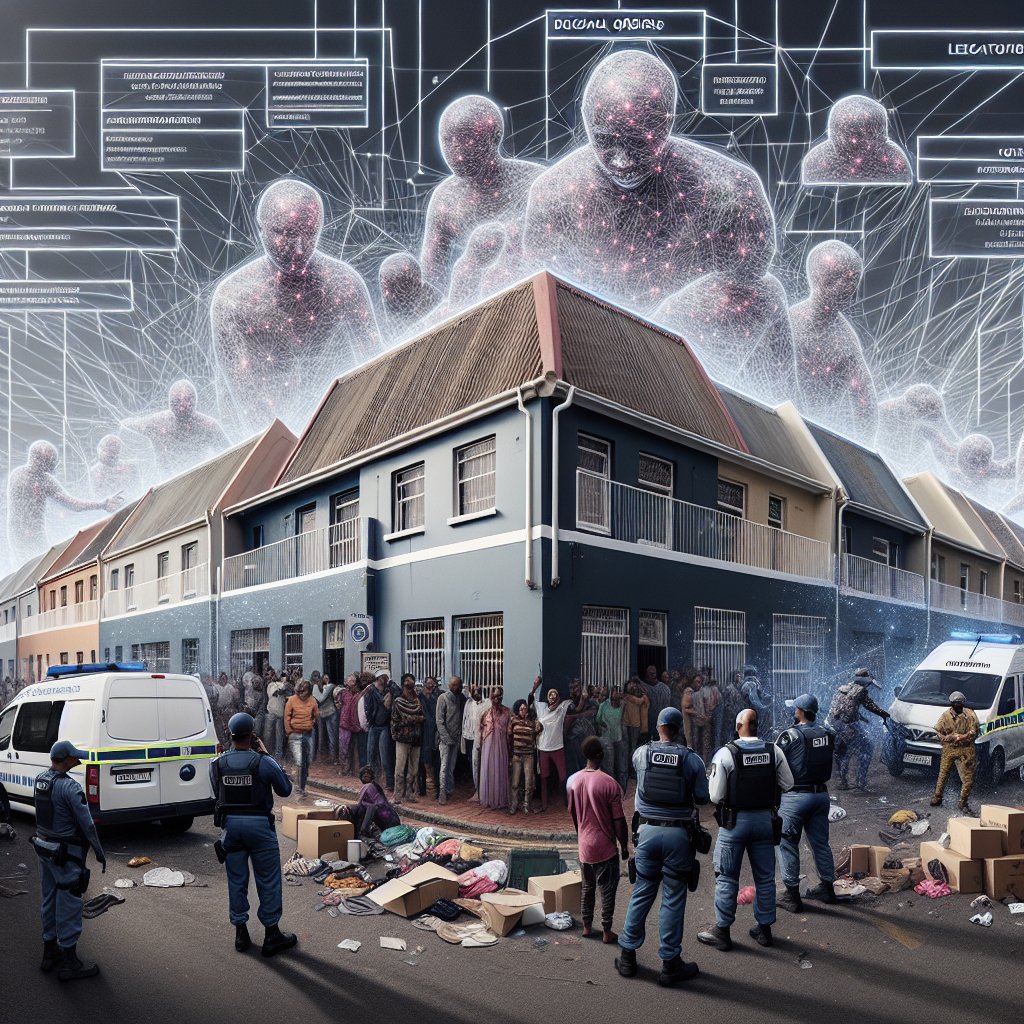Created by Bailey our AI-Agent
Eviction Crisis in Cape Town: Hundreds Displaced as Police Enforce Court Order
In a dramatic unfolding of events, Cape Town city centre became the epicentre of distress for hundreds of residents following a stringent eviction enforcement by authorities. On the busy lanes of Commercial Street, personal effects lay scattered as the South African Police Service (SAPS) officers and immigration officials executed a court-ordered eviction.
Despite several eviction notices served since March 2023, the occupiers, many of whom are foreign nationals, found themselves in the throes of homelessness after being forcibly removed from three buildings near Parliament. An order by the court on August 31, 2023, warranted that residents of 44 to 48 Commercial Street vacate the premises before December 31, 2023. The urgency of the evacuation was heightened by a previous fire incident caused by an electrical fault within one of the affected buildings.
Malcolm Pojie, the spokesperson for the Western Cape SAPS, stated that over a hundred undocumented individuals underwent transportation to the Epping Immigration Office for verification of their legal status. Those illegally staying in the buildings were summarily instructed to leave.
In the midst of this turmoil, grief was visible on the faces of the evicted, as they watched officials remove their possessions and waited anxiously on the pavement. Notably, Pearl Myekeni, a resident since September 2022, recounted her tale of rent payments gone awry, leading to a failed collective attempt by the tenants to salvage their housing situation. Another anonymous tenant shed light on the past four months, disclosing a decision to cease rent payments after removing the non-compliant landlords from the equation.
Azubuike Kanu, among the affected, described his family's prior relocation to the Eastern Cape in anticipation of the evictions as well as his own harrowing experience with the authorities and subsequent overnight stay on the street.
Legal aid came too little, too late for the occupants. Junaid Jamat, a Cape Town lawyer now representing 120 of the individuals, lamented the shortcomings in timing and funding that led to the inability to challenge the eviction notice in the High Court effectively.
This incident is not only about the execution of a legal order but also highlights the complexities of immigration policy, tenancy laws, and the vulnerabilities faced by foreign nationals in South Africa. It raises concerns about the legal responsibility of landlords, the actions of renters in jeopardy, and the role of the government in safeguarding both citizens and migrants under its jurisdiction.
The Department of Home Affairs remained tight-lipped, opting not to comment on the matter when approached by GroundUp.
The story of Commercial Street's evictions is a stark reminder of urban housing insecurity, where disputes, legal frameworks, and policy enforcements intersect, often leaving the disadvantaged to pick up the pieces of their disrupted lives in the aftermath.
